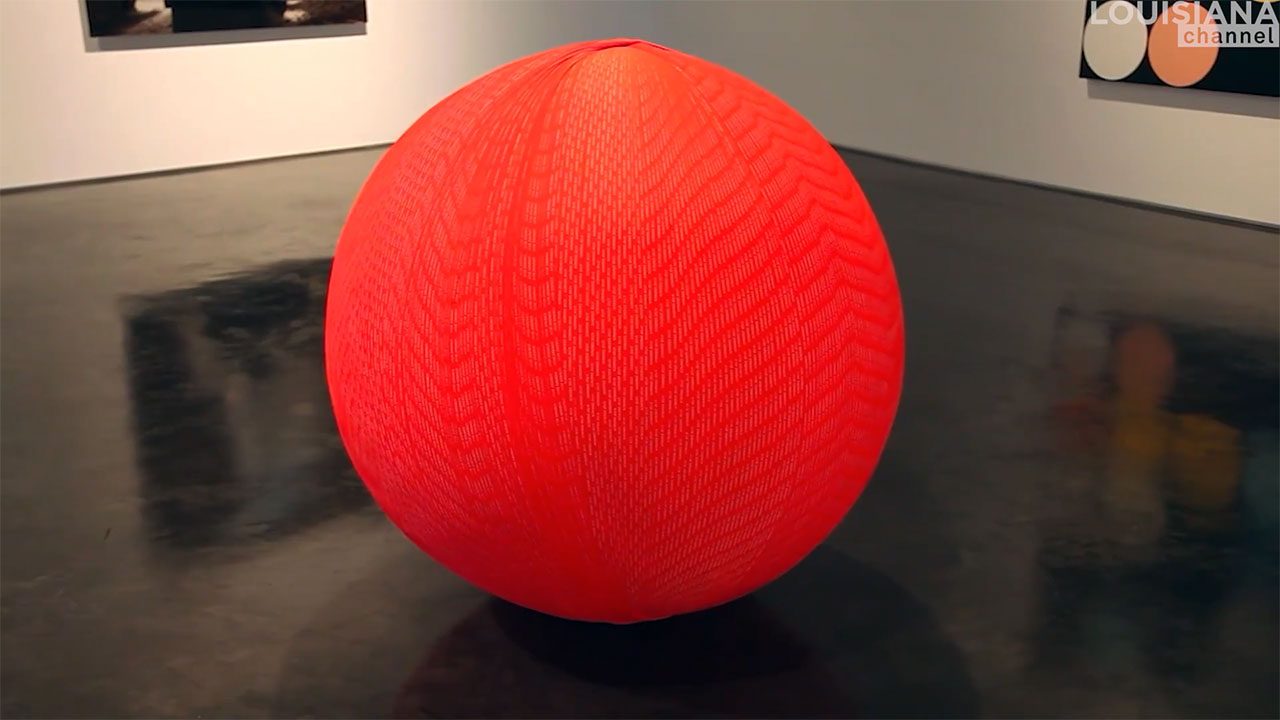VIDEO: Ayşe Erkmen-Art Is the Only Freedom
 Turkish artist Ayşe Erkmen reflects on her artistic journey, the notion of freedom in art, and her unconventional creative process. With a career spanning decades, Erkmen speaks about the challenges of working as a sculptor in Turkey during a time when contemporary art was largely overlooked, offering her a unique sense of liberty: “So, this nobody cares is the best thing that I have had as an artist.”
Turkish artist Ayşe Erkmen reflects on her artistic journey, the notion of freedom in art, and her unconventional creative process. With a career spanning decades, Erkmen speaks about the challenges of working as a sculptor in Turkey during a time when contemporary art was largely overlooked, offering her a unique sense of liberty: “So, this nobody cares is the best thing that I have had as an artist.”
Erkmen recounts her early years of exhibiting independently with a close-knit group of artists, filling a void in Istanbul’s art scene. She emphasizes the transformative power of space in her work, an approach rooted in necessity: “Space occupies a very important part in my work… I’m using what the space offers,” she says. From small interventions to large-scale installations, her work often conceals political messages, offering subtle commentary on human limitations, mobility, and societal divides. In one notable example at the Jerusalem Biennial, she installed orange gymnastic balls in an outdoor space to represent wind’s freedom in contrast to human immobility: “The air could go everywhere, but people could not go.”
Reflecting on the role of politics in her art, Erkmen describes her preference for subtlety: “A political message doesn’t have to be heavy… It can show something light and happy but still tell a deeper story.” Her works invite viewers to engage deeply, slowly uncovering layers of meaning. Whether creating an underwater bridge that evokes the pace of a pilgrimage or turning Venice’s canal water into drinking water, Erkmen explores themes of space, movement, and invisibility.
Erkmen also shares her views on the visibility of artists and the fleeting nature of identity. Critiquing the idea of the artist’s signature, she remarks: “When a name is repeated too many times, it vanishes”. Instead, Erkmen focuses on the work: ”The work is more important than the artist.” This idea of disappearance underscores her belief that art should transcend the ego.
Ayse Erkmen believed that “the best Turkish artists are women in Turkey. I think women have another view of life. That’s why women are doing a lot of things and these all these curiosity gives women more talent for life,” she states.
Throughout the interview, Erkmen remains grounded and self-reflective, sharing her perpetual doubts about her work. Yet, her practice reveals a deep curiosity and a relentless desire to experiment: “As every other artist, I’m always thinking of what to do… what is important to do at this point.”
Ayşe Erkmen (born in 1949 in Istanbul) is one of Turkey’s most celebrated contemporary artists, renowned for her site-specific installations and sculptures. One of her key features is the way she engages with the spaces where her works are displayed, transforming them through her installations. Her works have been exhibited internationally, including at the Venice Biennale (2011) and the Jerusalem Biennial. Erkmen’s art challenges conventional boundaries and often addresses themes such as identity, memory, and the interplay between space and time, often creating thought-provoking works that engage with both the physical and social environments around them.
Ayşe Erkmen was interviewed by Christian Lund in her studio in Istanbul, Turkey in September 2024. Cameras: Rasmus Quistgaard. Edit: Roxanne Bageshirin Lærkesen. Produced by Christian Lund. © Louisiana Channel, Louisiana Museum of Modern Art, 2024. Louisiana Channel is supported by Den A.P. Møllerske Støttefond, Ny Carlsbergfondet, and C.L. Davids Fond og Samling.
